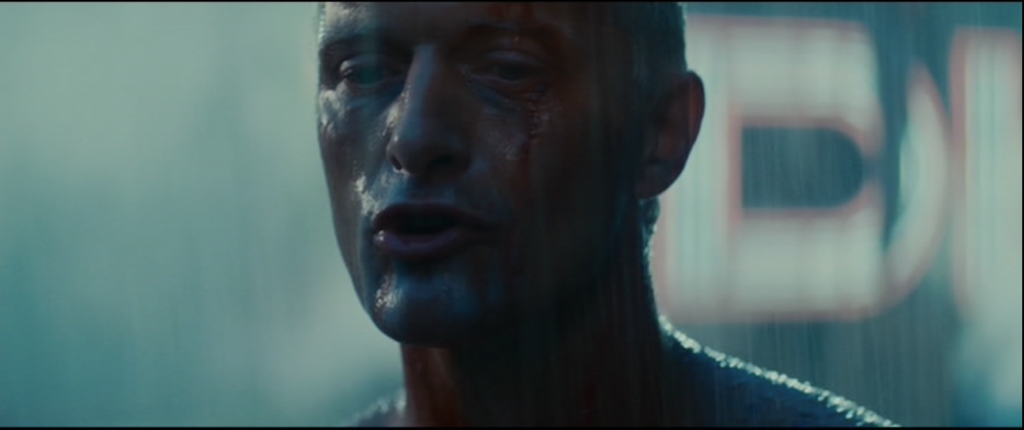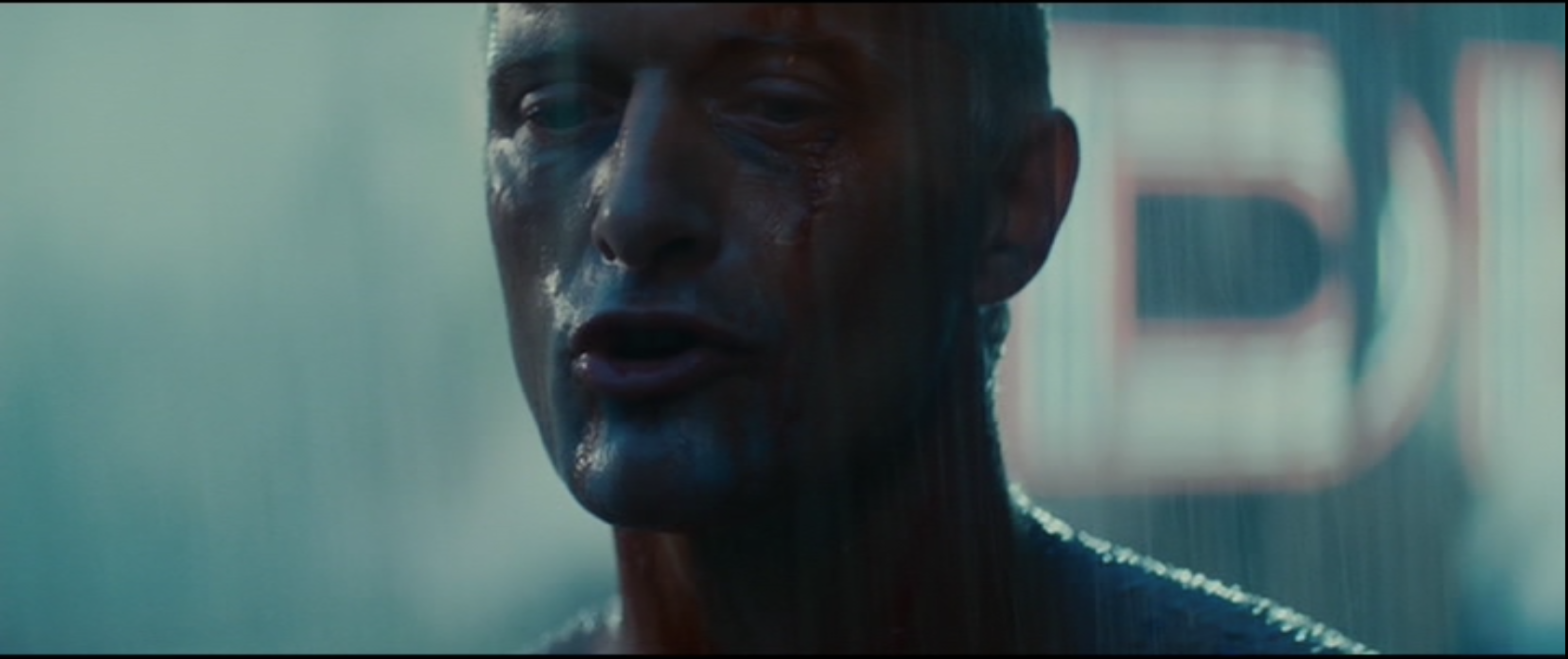Movie Review: Blade Runner (1982) directed by Ridley Scott
It is 2019, and Los Angeles is in rough shape. Thanks to climate change, pollution and other factors, animals are nearly extinct. The city itself is dark and run down, with almost perpetual rain showers. Most of the people who can move to off-world colonies have done so, leaving the poor, the sick, the stubborn and those who have the few remaining good jobs. To aid the off-worlders with labor and dangerous tasks, the Tyrell Corporation has invented artificial humanoids called “replicants.” Superficially indistinguishable from humans, they are built to be stronger, faster and more durable. To keep these slaves from organizing enough to rebel, they are made with planned obsolescence, dying in four years.

As a further precaution, replicants are banned from living on Earth. Some escape their masters and come to Earth anyway–while it’s become a hellhole, it’s easier to hide there. In response, the police have special operatives called “bladerunners” who track down and “retire” the fugitive replicants.
And that’s where Rick Deckard (Harrison Ford) comes in. He’s a top bladerunner, or was until the job soured him and he attempted to quit. His successor has been killed while trying to administer a Voight-kampf test to a suspected replicant, so his former boss Bryant (M. Emmett Walsh) sends enforcer Gaff (Edward James Olmos) to drag Deckard in for reinstatement. It’s made clear that Deckard will not be allowed to refuse. A group of four replicants is at large in the city, Zohra (Joanna Cassidy), Leon (Brion James), Pris (Daryl Hannah) and Nexus Six combat model Roy Batty (Rutger Hauer). They’ve already murdered several people just to get to Los Angeles, and their goal is unknown. Bryant wants them retired.
Deckard has little choice but to begin the hunt.
This classic science fiction movie was based on the novel Do Androids Dream of Electric Sheep? by Philip K. Dick, but had the title of an entirely different screenplay/novel attached to make it sound less silly. It did poorly at the box office for various reasons, including being released at the same time as the blockbuster E.T. which was more to the general audience’s taste. However, it became a hit in home video and reappraised, especially after later edits cleared up some of the problems. (The version I watched was “the final cut.”)
The cast is excellent, and despite them and the crew not getting along with director Ridley Scott, are largely doing their best. Love interest Rachel (Sean Young) is kind of flat. She’s revealed early on to be a replicant herself–perhaps she hasn’t been out of the vats long enough to develop a full personality?
The special effects are mostly practical, and include some lovely miniatures. The movie looks awesome. This version of Los Angeles has a very heavy East Asian influence, possibly due to increased immigration from those parts. (Japan was going through an economic boom at the time, and it was feared they might wind up owning America.) This makes it a bit funny when the “Chinatown” scenes don’t look different from anywhere else in town. It had a strong influence on “cyberpunk” aesthetics going forward, though the similar trends in William Gibson’s >I?Neuromancer were a case of convergent evolution.
There’s also some very quotable lines, with Roy’s final speech being mostly improvised.
Film noir is a heavy influence here. Yes, the replicants are murderous, but they are also escaped slaves. The police are certainly no better ethically, only legally. Deckard’s relationship with Rachel is inherently doomed, and the framing even makes his own humanity questionable. As so often in noir, the protagonist is less likely to have a happy ending than to just be grateful for survival.
Nifty bit: Despite having faster than light spaceships, flying cars and artificial life, this society did not invent the cell phone, but instead has TV-equipped public phones.
Content note: Lethal violence, some gory. A man’s eyes are gouged out. Female toplessness. Deckard has some rather odd notions about getting consent for romantic actions. Fantastic racism towards replicants. Older teens on up.
An excellent movie, but you might want to skip the original theatrical cut, which has unnecessary voiceovers. Highly recommended to science fiction fans.


And famously, the scene in which the pigeon takes flight into a suddenly blue sky … was a complete accident.
The voiceovers aren’t unnecessary, though. The fact that Deckard, having just spent a few minutes listening to that final speech, can still say, “I don’t know why he saved me”, speaks eloquently to how *lost* Deckard and by extension his whole civilization are, and gets a great followup in the sequel.